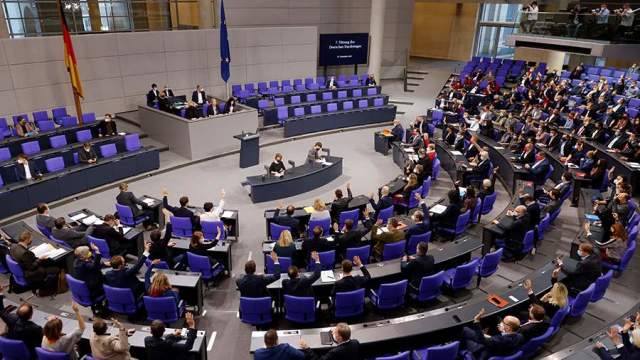The German Federal Government should take the initiative on a new agreement on intermediate-range and shorter-range missiles. On Wednesday, December 15, a member of the Bundestag defense committee from Alternative for Germany, Rüdiger Lukassen, told Izvestia.
He pointed out that Russia had announced the possible deployment of the INF in Europe, and also called on the Cabinet of Ministers to take the initiative on a new INF agreement. According to him, the heads of government of the participating States should not repeat the mistakes that were made by their predecessors in the 1970s and 1980s.
At the same time, earlier that day, a member of the Bundestag Committee on International Affairs, Yevgeny Schmidt, pointed out that the North Atlantic Alliance needs to stop pursuing an unfriendly policy towards Russia and move to de-escalation.
He noted that after the collapse of the Soviet Union, NATO, contrary to promises, was advancing to the Russian borders, accepting new members, deploying troops at the borders and completely ignoring Russia's concern for its security.
According to Gunnar Lindemann, a deputy of the Berlin City Chamber, the "NATO spectacle" on the Russian border is taking on frightening proportions. Instead of constantly provoking Russia, especially using Ukraine, a real policy of detente and disarmament is now needed, both in terms of statements and in military terms, he concluded.
On December 15, Russian Presidential aide Yuri Ushakov, following a conversation between President Vladimir Putin and Chinese President Xi Jinping, said that Moscow had given Washington representatives concrete proposals aimed at developing legal guarantees to ensure the security of the Russian Federation.
On the eve of the White House press Secretary Jen Psaki said that in the United States they believe that now is "not the time" to deploy INF in Europe manufactured by the Russian Federation. Thus, she answered the journalists' question about how Russia's statements about the possibility of the appearance of Russian INF in Europe are regarded in the United States.
On December 14, NATO Secretary General Jens Stoltenberg said that it makes no sense to agree to Russia's proposal to impose a moratorium on the deployment of weapons in Europe, since it does not inspire confidence.
The day before, the Russian Foreign Ministry warned that if the countries of the North Atlantic Alliance did not respond to Moscow's demand for security guarantees, it would lead to a new round of confrontation.
On December 8, Putin said that after being accepted into NATO, weapons threatening Russia could be deployed in Ukraine. The Head of State also expressed hope that "all concerns about NATO expansion" will be heard.

